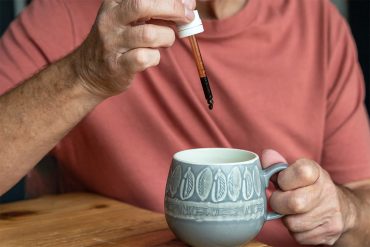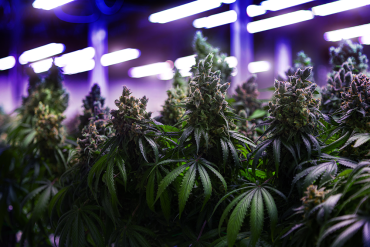- You have no items in your shopping cart
- Continue Shopping
How Long Does Cannabis Stay in Your System?

Cannabis consumption is widespread in Canada, with many individuals enjoying its recreational and medicinal benefits. However, whether you’re a casual user or a frequent consumer, a common question often arises: how long does cannabis stay in your system? The answer varies depending on several factors, including the type of cannabis consumed, your body’s metabolism, and how frequently you use it. WeedHub Canada will delve into the science behind cannabis metabolization, offer insights into detection windows, and explore how different strains might impact how long cannabis lingers in your system.
Understanding How Cannabis is Processed by Your Body
When you consume cannabis—whether by smoking, vaping, or ingesting—it interacts with your body’s endocannabinoid system (ECS), influencing various physiological functions. The main psychoactive compound in cannabis, THC (tetrahydrocannabinol), is responsible for the “high” feeling, but it’s also the component that stays in your body the longest. THC and its metabolites (byproducts of the compound) are stored in your body’s fat cells and can take time to be fully processed and excreted.
Once consumed, THC enters your bloodstream and is transported to your brain and other organs. This is when the effects of cannabis start to kick in. But how long does it stay detectable?
- Blood: Cannabis can remain in your blood for up to 24 hours if you are an occasional user. However, in chronic users, THC can be detected in the bloodstream for up to a week.
- Urine: Urine testing is the most common way to detect cannabis use. For occasional users, cannabis can be detectable for up to 3 days. Moderate users may test positive for up to a week, and heavy users may find traces of cannabis in their urine for up to 30 days.
- Saliva: Cannabis can be detected in saliva for 1-3 days after use. However, some tests may detect THC in saliva for longer, depending on frequency and amount of use.
- Hair: Hair tests can show traces of cannabis use for up to 90 days. This is because THC metabolites get embedded in hair follicles as they grow.
Several factors influence how long cannabis stays in your system, including metabolism, body mass, age, hydration levels, and frequency of use. People with higher body fat percentages or slower metabolisms may retain THC in their system longer than those with leaner bodies or faster metabolic rates.
How Different Cannabis Strains Impact THC Detection
Not all cannabis strains are created equal. Some have higher concentrations of THC, while others are more CBD-dominant. Understanding the strain you’re consuming can help give you a better idea of how long it might stay in your system.
- High-THC Strains: Strains like Godfather OG or Girl Scout Cookies have some of the highest THC concentrations, sometimes reaching 25-30% or more. These strains will generally stay in your system longer because the body needs more time to metabolize the higher amounts of THC. If you’re using these high-THC strains regularly, expect longer detection windows for blood, urine, and hair tests.
- Balanced THC/CBD Strains: Strains like Harlequin or Cannatonic are known for having a balanced ratio of THC and CBD. While these strains offer therapeutic benefits without a heavy high, they still contain enough THC to be detectable. The detection window for these strains might be shorter compared to high-THC strains, especially if you are using them moderately or only on occasion.
- High-CBD, Low-THC Strains: Strains like Charlotte’s Web are predominantly CBD-based and contain very little THC. While they won’t get you high, trace amounts of THC could still show up in tests. If you’re consuming these strains, the detection window is generally shorter, but it also depends on your body’s ability to process the minimal THC content.
In addition to the THC content, the method of consumption can also play a role. Ingesting cannabis through edibles, for example, can result in longer detection windows compared to smoking or vaping because the THC is metabolized differently in the liver.
Tips to Speed Up THC Elimination
While the only surefire way to pass a cannabis test is to abstain, there are certain strategies that may help speed up the elimination of THC from your system. Keep in mind that these are not guaranteed, but they may aid in the process.
- Hydration: Drinking plenty of water helps your body flush out toxins. While hydration alone won’t “wash out” THC overnight, it can help reduce concentration levels in your urine, especially if you drink water regularly and stay hydrated.
- Exercise: THC is stored in fat cells, so regular exercise may help break down fat and release THC into your bloodstream to be processed and excreted. Cardiovascular exercise, in particular, is effective in increasing your metabolism and potentially speeding up the elimination process.
- Diet: Eating a balanced diet rich in fiber can aid your digestive system in eliminating THC metabolites more efficiently. Some people also turn to detox drinks or natural diuretics like cranberry juice to help flush out their system.
- Time: At the end of the day, time is the most important factor in removing THC from your system. Even with hydration, exercise, and a healthy diet, your body still needs time to metabolize and excrete THC. The length of time depends on the factors we mentioned earlier, such as metabolism, body fat, and the frequency of cannabis use.
If you know you have an upcoming drug test, the best course of action is to abstain from cannabis use well in advance. Keep in mind that even after the effects of cannabis wear off, THC may still be present in your system for days or even weeks.
How Long Cannabis Stays in Your System Varies
Cannabis stays in your system for varying lengths of time depending on a multitude of factors—your usage habits, metabolism, the strain of cannabis, and your body’s fat content. While casual users may be able to clear THC from their system in just a few days, chronic users could face longer detection times, up to 90 days in some cases. Understanding how your body processes cannabis and knowing what kind of strain you’re using can help you better predict how long it will stay in your system.
If you’re concerned about an upcoming drug test or just curious about how cannabis interacts with your body, keep in mind that everyone is different. Factors such as your body type, consumption method, and choice of strain all play a role. Whether you’re a casual user or a daily consumer, it’s essential to be informed about how cannabis metabolizes in your body so you can make educated decisions. As always, feel free to reach out to our customer support team with any questions!




